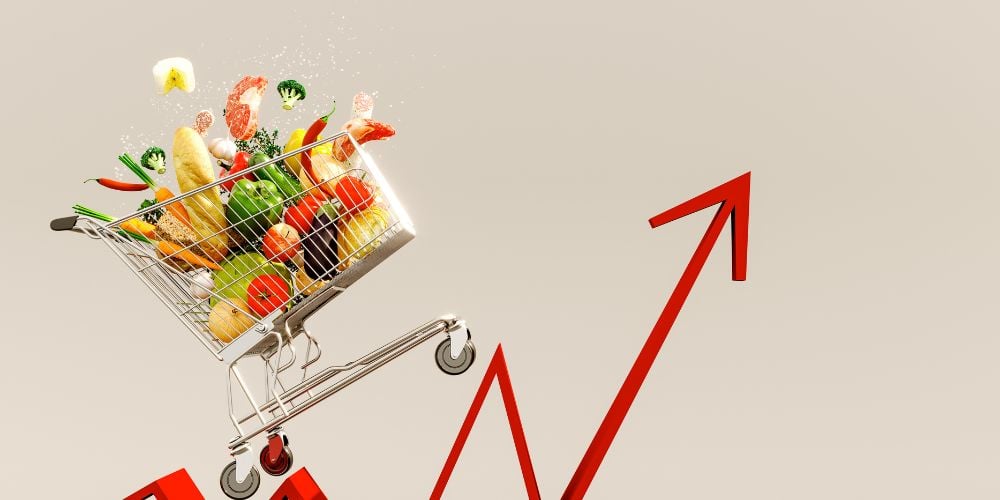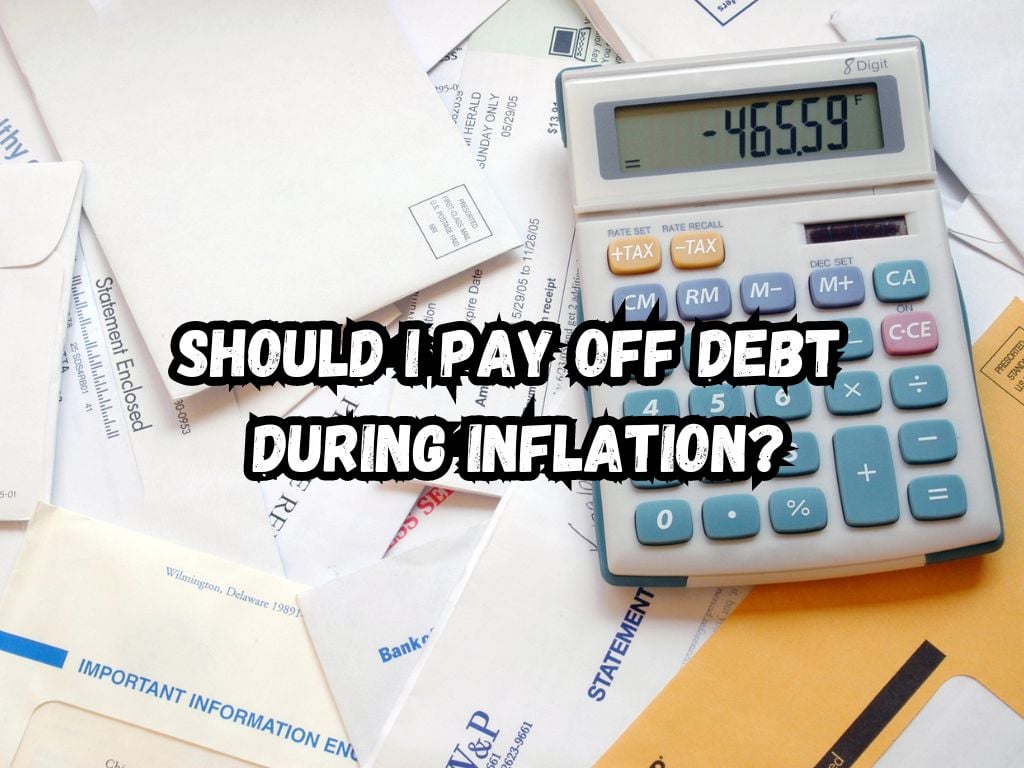Inflation has a deep impact on the economy. It refers to the rise in the prices of goods and services over time.
When inflation is high, your dollar buys less. It’s a natural economic condition if it happens at a controlled rate. But when inflation spikes, it can cause issues. It affects everything from your grocery bill to your savings account.
At the same time, it’s crucial to understand what debt means to you. When you borrow, you agree to pay back the amount with interest. So, should I pay off debt during inflation?
Debt isn’t always bad. It can let you make big purchases like a house or a car. But too much debt can lead you towards financial troubles.
Should I Pay Off Debt During Inflation?
The decision of paying off debt during inflation depends on several factors. People often think about paying off debt when they have extra cash. But in inflation, you need to think about what that cash will be worth in the future.
Inflation reduces the value of money over time. If inflation goes up, the money you owe becomes less valuable. This might make you think twice about paying off debt.
Let’s say you have a loan with a fixed interest rate. The real cost of this debt goes down when inflation goes up. That’s because the loan is in dollars that are worth less in the future.
So, rather than paying off this debt, you might want to invest that money elsewhere. But always remember, this strategy comes with its risks.

Pros and Cons of Paying Off Debt During Inflation
There are benefits to paying off debt during inflation. For one, it can provide peace of mind. Having less debt is a good feeling. It can make your financial situation more stable.
On top of that, paying off debt can save you from paying too much in interest. But there are downsides too. As noted before, inflation makes the dollar worth less.
This means the cost of your debt can go down in real terms. So if you focus on debt repayment, you may miss other investment opportunities.
Consider a scenario where interest rates are rising. This often happens during inflation. You might choose to invest rather than pay off debt. Investments could earn more as interest rates rise. For instance, you might get more from a savings account or a certificate of deposit.
Strategies: Paying Off Debt During Inflation
When deciding whether to pay debt during inflation, consider the type of debt. It also depends on your financial stability and personal situation.
First, look at the interest rate on your debt. There are two types – fixed and variable rate debt. A fixed rate doesn’t change over time.
But a variable rate can go up or down. When inflation rises, interest rates often go up. This could make your variable rate debt cost more. So it may be wise to pay it off.
Your financial stability is another factor. If you have a solid emergency fund, you may choose to invest instead of paying off debt. But if you have little savings, paying off debt might be the best way to reduce your financial risk.
Lastly, consider your personal situation. Think about your income, expenses, and financial goals. If being debt-free is a top priority for you, keep making those debt payments. But if you have high-cost debt like credit card debt, paying it off could be a good move regardless of inflation.
Expert Tips and Advice
Inflation and debt repayment are vast areas. They often require expert advice. One rule of thumb is to pay off high-interest debt first. No investment will give a sure return higher than the interest rate on high-cost debt.
Another important tip is to keep investing, even in periods of inflation. Not investing can lead to loss of potential profits. Remember, building wealth is a long-term game. You can’t do it by focusing only on debt repayment or only on investment.
During inflation, keeping cash can be a mistake. The value of cash diminishes with each day when inflation is high. It’s better to have money in investments that have the chance to grow.

Frequently Asked Questions
How does inflation affect my debt?
Inflation can lower the real cost of your debt. If the inflation rate is higher than the interest rate on your debt, you’re repaying the debt with money that’s worth less over time.
Should I pay off my mortgage during inflation?
The decision depends on your specific situation and the terms of your mortgage. If your mortgage has a low, fixed interest rate, it might not make sense to pay it off during periods of high inflation. You might be able to make more by investing that money instead.
What types of debt should I focus on during inflation?
If you decide to pay off debt, it’s usually best to prioritize high-interest, variable-rate debt.
Are there benefits to not paying off debt during inflation?
Yes, during inflation, money loses value. So you could end up paying back your debt with money that’s worth less. This effectively reduces the cost of your debt.
What should be my first step if I decide to pay off debt during inflation?
First, make a list of all your debts. Prioritize them based on the type of interest rate and the loan balance. It’s usually best to pay off high-interest, variable-rate debt first.
Conclusion
Whether you should pay off debt during inflation is not a question with a clear yes or no answer. It depends on factors like the type of debt, your financial condition, and personal goals. Inflation can devalue money, making debt less expensive in reality.
But the peace of mind that comes from being debt-free and saving on the interest expense can be invaluable. It’s best to consult a financial advisor to help you navigate these complex decisions.


 Tags:
Tags:










